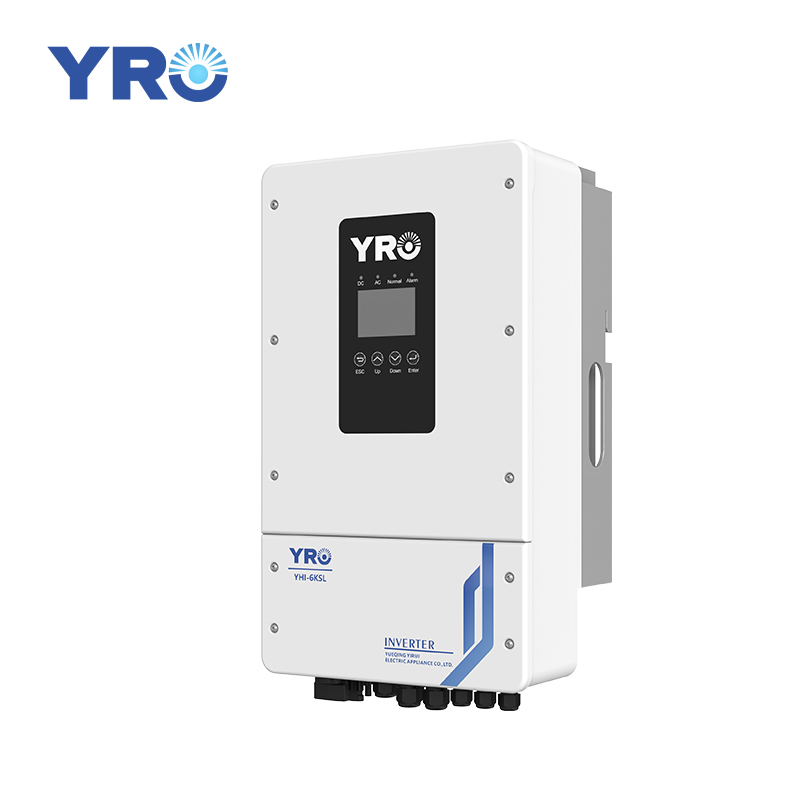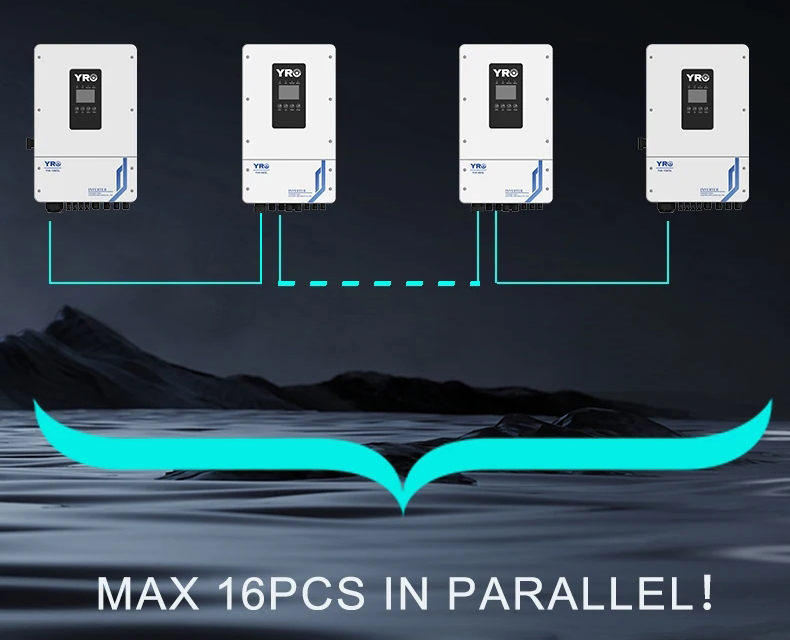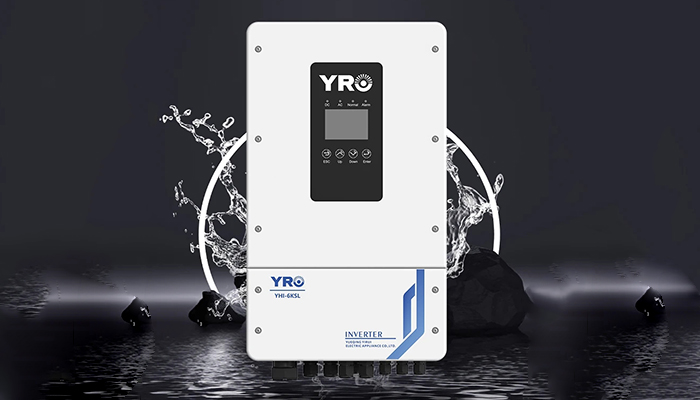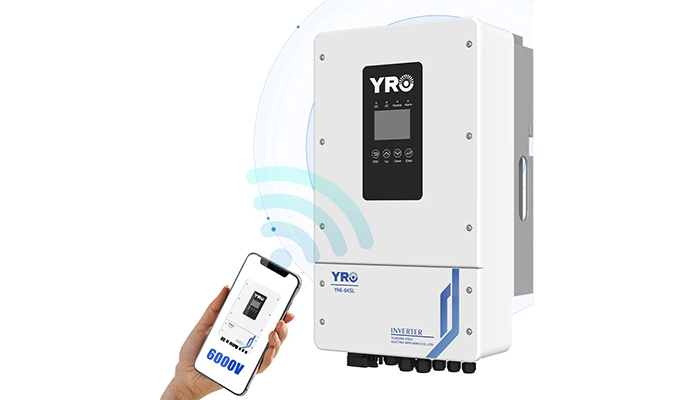In the evolving landscape of energy solutions, hybrid inverters are emerging as a pivotal technology, blending the functionality of traditional and modern power systems. This article delves into the mechanics, benefits, and business implications of hybrid inverters, offering insights for businesses navigating the renewable energy sector.

Understanding Hybrid Inverters
Hybrid inverters, ingeniously engineered to function both as a traditional inverter and a battery inverter, represent a paradigm shift in power management. They convert Direct Current (DC) from solar panels into Alternating Current (AC) for immediate use, while also having the capability to store excess energy in batteries for later use. This dual functionality positions them as a cornerstone in modern energy systems.
Key Features:
- Dual Operation Mode: Ability to switch between grid-tied and off-grid power supply.
- Energy Storage: Integration with battery systems for energy storage and backup power.
- Smart Energy Management: Automated control of energy flow, optimizing between energy usage, storage, and grid export.
The Business Case for Hybrid Inverters
The adoption of hybrid inverters presents numerous advantages for businesses, particularly those focusing on sustainability and energy efficiency.
Cost-Effectiveness
- Reduced Energy Bills: By maximizing the use of solar energy and reducing reliance on the grid, businesses can significantly cut energy costs.
- Peak Shaving: Load shifting during peak tariff hours reduces electricity bills.
Enhanced Reliability
- Uninterrupted Power Supply: In the event of a grid outage, the inverter can seamlessly switch to battery power, ensuring business continuity.
- Improved Grid Stability: They can provide reactive power support and voltage regulation.
Environmental Impact
- Reduced Carbon Footprint: Leveraging renewable energy sources directly contributes to a business’s sustainability goals.
Future Trends and Developments
The potential of hybrid inverters is vast, with continuous advancements shaping their role in energy systems.
- Integration with Smart Grids: As smart grids evolve, hybrid inverters will play a critical role in energy distribution and load balancing.
- IoT and AI Enhancements: Enhanced predictive analytics and better energy management through AI algorithms.
- Scalability and Flexibility: Developments in modular designs allowing for scalability to suit different business needs.

Navigating the Future of Energy: Waterproof Hybrid Inverters with Mobile Control
In the rapidly evolving energy sector, waterproof hybrid inverters with mobile phone control are carving out a niche, offering unparalleled flexibility and resilience in energy management. This article delves into the nuances of these advanced hybrid inverters, exploring their features, benefits, and the impact they have on businesses in diverse environments.
Waterproof Hybrid Inverters: A Leap in Durability
Waterproof hybrid inverters represent a significant advancement in inverter technology. Designed to withstand harsh environmental conditions, these inverters offer robustness and reliability in settings where moisture and water exposure are prevalent.
Key Features:
- Water Resistance: Advanced sealing techniques ensure protection against water ingress, essential for installations in humid, rainy, or coastal areas.
- Corrosion Resistance: The use of corrosion-resistant materials extends the lifespan of the inverter, even in challenging environments.

Mobile Phone Control: Revolutionizing Energy Management
The integration of mobile phone control with hybrid inverters marks a leap forward in user convenience and system monitoring.
Key Features:
- Remote Monitoring and Control: Real-time tracking of energy production, storage, and consumption through a mobile app.
- Automated Alerts: Notifications for system performance, maintenance needs, and energy consumption patterns.
- User-Friendly Interface: Simplified control and monitoring, making it accessible for non-technical users.
Business Implications of Advanced Hybrid Inverters
These innovative inverters present a suite of benefits for businesses, particularly those in challenging environments or seeking greater control over their energy systems.
Enhanced Durability
- Reduced Maintenance Costs: Waterproofing reduces the risk of damage, thereby lowering maintenance requirements and costs.
- Versatility in Installation: Suitable for a broader range of locations, including maritime, agricultural, or flood-prone areas.
Improved Energy Management
- Real-Time Data Access: Instant access to energy data facilitates informed decision-making for energy usage and savings.
- Customized Energy Strategies: Ability to tailor energy consumption and storage based on real-time data and forecasts.
Increased User Engagement
- Empowered Consumers: Mobile control puts power in the hands of the user, enhancing engagement and awareness of energy usage.
The Road Ahead
The combination of waterproofing and mobile control in hybrid inverters is just the beginning. The future will likely see further integration with smart home systems, advanced predictive analytics for energy management, and seamless integration with a range of renewable energy sources.

- Hybrid inverters are more than just a technological innovation; they are a strategic asset in the global shift towards sustainable energy. For businesses, they offer a path to reduce costs, enhance energy reliability, and contribute to environmental goals. As this technology evolves, it will undoubtedly become a key player in the energy landscape, revolutionizing how businesses manage and utilize power.



